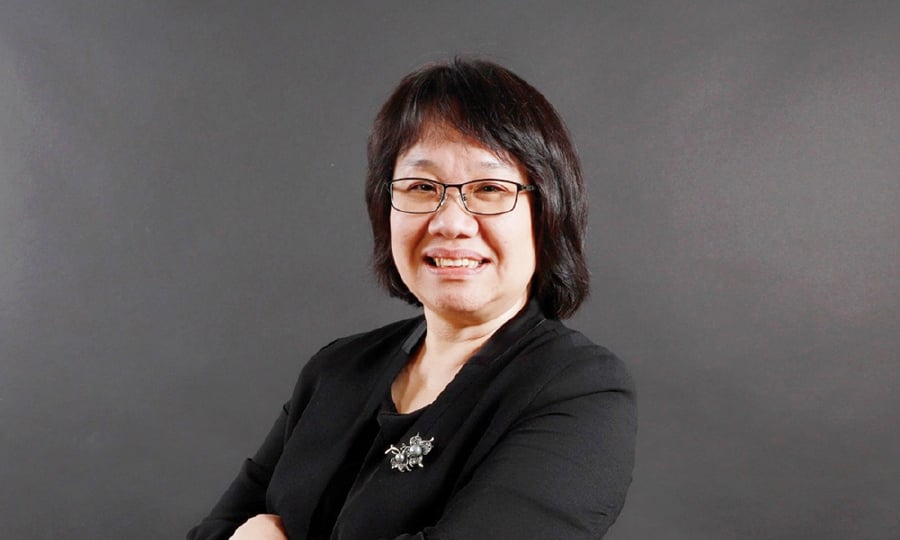By Rozana Sani

WITH the Covid-19 situation disrupting classes and activities on campus, the only option available for students to resume learning is to go online.
This not only ensures the safety of students and staff, but also addresses the issue of education continuity for students, especially during the Movement Control Order (MCO) period and, if need be, beyond.
But how prepared are our higher education institutions to offer online learning at a large scale?
While some universities are prepared with the infrastructure, there are opinions that say factors like cognitive thinking and the social aspect of learning cannot be achieved fully via a digital platform.
At Taylor’s University, the move to resume lectures, tutorials and assessments online is being guided by its e-Learning Masterplan.
According to its deputy vice-chancellor and chief academic officer, Professor Dr Pradeep Nair, the initial objective of the masterplan was not only to enrich and complement face-to-face learning, but also to prepare for a time like this — a partial or full lockdown of the university.

“We invested in a state-of-the-art Learning Management System, Lecture Capture System, remote communication tools and applications, expanded hardware capabilities and created over 1,000 course microsites for each course taught in the university.
“In addition, our eLearning Academy team has made available and trained our lecturers to use various platforms and softwares for recording, video editing, resource sharing, online collaborations, polling, assessment and even creating virtual labs.”
Based on the guideline, Taylor’s University has had the experience of switching to e-learning mode when the haze interrupted classes for several days each year in the past.
“We do not know for certain how long this pandemic is going to persist. But for now, I believe it is possible to carry out teaching and learning online, save and except for hands-on practical classes that require use of specialised facilities and high-end equipment for students and researchers.
“We have asked lecturers to consider alternative forms of module delivery, or create a simulated environment for practice, wherever possible, as a contingency plan to cater for the MCO period and until it’s safe to return to campus.”
Quest International University Perak will replace in-class teaching with online learning, where in-class teaching was originally planned.
Its Academic Affairs director, Professor Dr Tina Lim, said the implementation of online learning would have manageable downloads, as well as efficient and to-the-point interactions.
“This is because not all of our students may have high-end laptops, or computers, and fast Internet speed, or big data plans on mobiles or at their residences,” she said, adding that a prompt technical support system was in place to troubleshoot technical issues.
“However, for cases where there is no teaching per se involved, such as industrial training and clinical postings for our medical and pharmacy programmes, there is definitely no online teaching to replace those components. We will conduct practicals when the MCO is lifted.”
For Universiti Malaya (UM), experience in organising an annual e-Learning week in the past will help ensure minimal interruptions to the learning process. Teaching and learning activities were conducted online for a week with no physical classes during the programme.

UM Academic Enhancement and Leadership Development Centre (ADeC) e-Learning head Dr Zahiruddin Fitri Abu Hassan said the varsity’s eLearning platform had been optimised to allow large numbers of concurrent connections, thanks to the feedback and experience of the annual e-Learning week.
“The practice has helped prepare the lecturers and students to shift to online mode when the situation demands.”
Lecturers received training and guidance from ADeC and each faculty has its own e-Learning coordinators tasked with ensuring teaching is effective.
“A business continuity management framework, SOPs (standard operating procedures) are in place and continually being developed to tackle any issues that might arise.
“The academic fraternity are agile and adaptive in facing challenges like the MCO. Projects, group work, presentations and assessment can be done even collaboratively online in real-time with the aid of technology.”
UM’s Faculty of Languages and Linguistics English Language Department lecturer, Associate Professor Dr Mohd Ridwan Abdul Wahid, said although academicians were ready to embrace a higher level of e-learning delivery, it pays to recognise the approach had its limitations.
“There are human elements, such as sensing students’ incomprehension or making in-group jokes to lighten the mood, that cannot be done as effectively through virtual means because the physical presence is missing.”
Sustaining students’ enthusiasm and getting them engaged in each online interaction would also be a challenge beyond the novelty period of having online classes.
As for assessments, he said: “Although I’ve done it before, I can’t say I’m comfortable with conducting all assessments entirely online, especially when we teach large classes.”
UM Sports and Exercise Sciences Centre lecturer Yuhanis Adnan said academicians needed to invest a lot of time to plan and execute online teaching.
“The teaching activities incorporated in online teaching — either individual work or group work — have to be exciting enough to encourage student participation. For forum sessions, you have to be responsive to students’ questions or responses. If you’re slow in responding to the forum, they may not be that interested in it.
“Regular checks on activities and reminding students that had not participated is needed,” she said.
SEGi College Subang Jaya English lecturer Anis Yew is concerned about the issue of equity where online learning is concerned.
“Is virtual delivery widening the gap between the privileged and underprivileged groups? This is an issue that needs support from our national policy.
“Educators can provide alternatives to minimise the gap. If live interaction, such as video conferencing, is bandwidth-heavy and costly, make resources accessible through applications like Whatsapp, Telegram, or even Instagram Live, which may be more cost-effective.”
Anis said the social aspect of education was integral to the college and university environment, and that without human interaction, students might find their enthusiasm in their studies waning.
“Courses that are laboratory-based, or thesis guided by supervisors, will be harder to do via screens. Face-to-face teaching and peer interaction that enhance deep thinking will be challenging to re-produce virtually too. Virtual learning will lift some of our current limitations, but the jury is still out on its impact in the long run.”
